100 Days Of Dante
Welcome to the 100 Days of Dante. Here, you’ll find the heart of our project:
100 short, accessible introductions to the cantos of Dante’s Divine Comedy, by teachers who know and love Dante.
Abandon All Hope Ye Who Enter Here
OVERVIEW
Ralph Wood is a former Professor of Theology and Literature at Baylor University. He is the author of The Gospel According to Tolkien: Visions of the Kingdom in Middle-earth, Literature and Theology, and Flannery O’Connor and the Christ-haunted South.
Questions for Reflection
- The Comedy begins with the line, “Midway through the journey of our ” Why would Dante the Poet use the word “our” here? How does this language immediately incorporate us as readers into the pilgrim’s journey?
- What is the dark wood in which we first find Dante the pilgrim? What spiritual, moral, or existential state does it depict? What does Dante show us about the character of sin by stating that he does not know how he came to be so lost in the dark wood (1.10-12)?
- What do the sun, the mountain, and the three beasts mean to the pilgrim? What might they represent to contemporary readers about the Christian life? Is the pilgrim’s aborted journey up the mountain a critique of Plato’s allegory of the cave?
- Notice that the pilgrim’s first words in the Comedy comes in line 65: “Miserere di me”: a callback to David’s great prayer of penitence in Psalm 50/51. What is the significance of these being the first spoken words in the poem?
- Why Virgil? Why might Dante select a pagan to guide him through the Christian afterlife?
- Why must Dante first descend into hell in order to escape the dark wood? What kind of education or therapy for his soul will his infernal journey provide?
Video Transcript
Well, friends, Dante in 100 days, a hundred cantos. We are embarked on a wonderful journey, a trip through the greatest of all Christian epics, Dante’s Divine comedy. If we read and heed this epic well, it will change our lives, but first of all, they’re just a few data. There are a few things that we need to know.
Dante’s dates are 1265 to 1321. He was a native of Florence, an important cultural and political city during the Middle Ages, and yet, Dante was struck with tragedy fairly early in his life. It occurred in 1302 when Dante was exiled from his high public office in Florence, on trumped-up charges of corruption. He was never allowed to return. (more…)
DETAILS
- Dr. Ralph Wood
- Baylor University
- Run Time 13:23
OVERVIEW
Anthony Nussmeier is an Associate Professor of Italian and the Director of the Italian Language program at the University of Dallas. He regularly teachers classes abroad in Florence and is an expert in Dante, Medieval Literature, and Italian pedagogy.
Questions for Reflection
- Why does Dante slide into cowardice at the outset of his journey into hell and what does this reveal about the divided character of his will (2.37)?
- What does Dante’s cowardice and divided will reveal about the diligence and fortitude needed for living out the Christian life?
- Who are the three heavenly women who instigate Dante’s salvific journey with Virgil? Why these three figures? How do they correspond to the three beasts of the previous canto? What role do their compassion, hope, and tears play in this canto?
- What does Dante’s depiction of the heavenly women show us about how he imagines the relationship between the blessed in heaven and those lost and wandering on earth? How might we better image that heavenly attitude in our lives?
Video Transcript
The Second Canto of Purgatorio is a moment of pause, of rest, of hesitancy, of delay. As it opens, everything is in balanced transition. Sunset and sunrise are balanced over the hemispheres. The night and the sun are balanced. The night over the Ganges holds the constellation Libra, the balances. The colors of Aurora are balanced, the white and scarlet of dawn, combining towards gold. And Dante and Virgil are also balanced. Dante says of them, “We were still by the sea, like those who think about the journey they will undertake, who go in heart, but in the body, stay.”
So in glorious harmony at the opening of the canto, the poet matches the expectation of the heart with the moving balancing moment of the whole heavens. Here, at the boundary between mortal life and immortal life, between the body and the heart. The poet fills this moment of pause with the most beautiful things he can, a vision of what will follow in Purgatorio, and distinguish it from the nightmares of the Inferno. An angel appears with a boat full of souls chanting a psalm, and Virgil calls Dante to kneel in reverence. (more…)
DETAILS
- Dr. Anthony Nussmeier
- University of Dallas
- Run Time 9:33
OVERVIEW
Fred Sanders is a Professor of Theology in the Torrey Honors College at Biola University. He is a systematic theologian and the author of The Triune God and Wesley on the Christian Life: The Heart Renewed in Love.
Questions for Reflection
- What does the inscription above the gate of hell (3.1-9) tell us about the nature and purpose of Dante’s hell? How might this inscription challenge our contemporary understanding of hell?
- The gate invokes the Trinity (Power, Wisdm, and Primal Love) as hell’s creator. Is there any reasonable way that we can conceive of hell as an expression of divine Love?
- What is the significance of Dante’s hell being underground, cut off from the sky and the stars?
- Who are the first souls that Dante sees in the vestibule of hell and why is that location so significant for what is being punished in it?
- How do the souls of the damned behave as they move toward their judgment and what does this show us about the human desire for justice (3.124-126)
DETAILS
- Dr. Fred Sanders
- Torrey Honors College
- Run Time 11:23
OVERVIEW
William Weaver is an Associate Professor of Literature in the Honors College at Baylor University. His research explores the history of rhetoric, early modern English poetry, and Renaissance humanism.
Questions for Reflection
- Who populates the first circle of hell, Limbo? What kind of existence do they lead? Is there any punishment for them?
- Has anyone ever left Limbo? Does Virgil understand the significance of what he witnessed in Christ’s harrowing of hell?
- Is Dante in moral or spiritual danger in canto 4 as he spends time among the great poets and philosophers of antiquity? If so, how?
- Is Limbo just?
DETAILS
- Dr. William Weaver
- Baylor University
- Run Time 7:45
OVERVIEW
Jane Kim is an Associate Professor of Classics in the Torrey Honors College at Biola University. She is an expert on the influence of Dante’s poetic theology on British Romantic conceptions of the poet and poetry.
Questions for Reflection
- How does the theme of confession structure this canto?
- What is the contrapasso of the lustful? What does this punishment reveal about the character of lust as a sin?
- Why are so many of the examples of the Lustful sinners political rulers? What relationship between physical and political lust might Dante be developing here (Hint: check out St. Augustine’s City of God book 14, chapter 28)?
- Why would Dante present Francesca so sympathetically? How might he be trying to implicate us as readers?
- What does Francesca’s story of her sin show us about the relationship between reading and (im)moral action and damnation? How might the Comedy itself serve as a counterargument that we can indeed read for the sake of our salvation (Hint: check out St. Augustine’s conversion story in book 8 of Confessions)?
- Is the pilgrim’s pitying response of Francesca and Paolo a proper response to their story? Why might pity for the damned be a theological problem in relation to divine justice?
DETAILS
- Dr. Jane Kim
- Torrey Honors College
- Run Time 7:52









